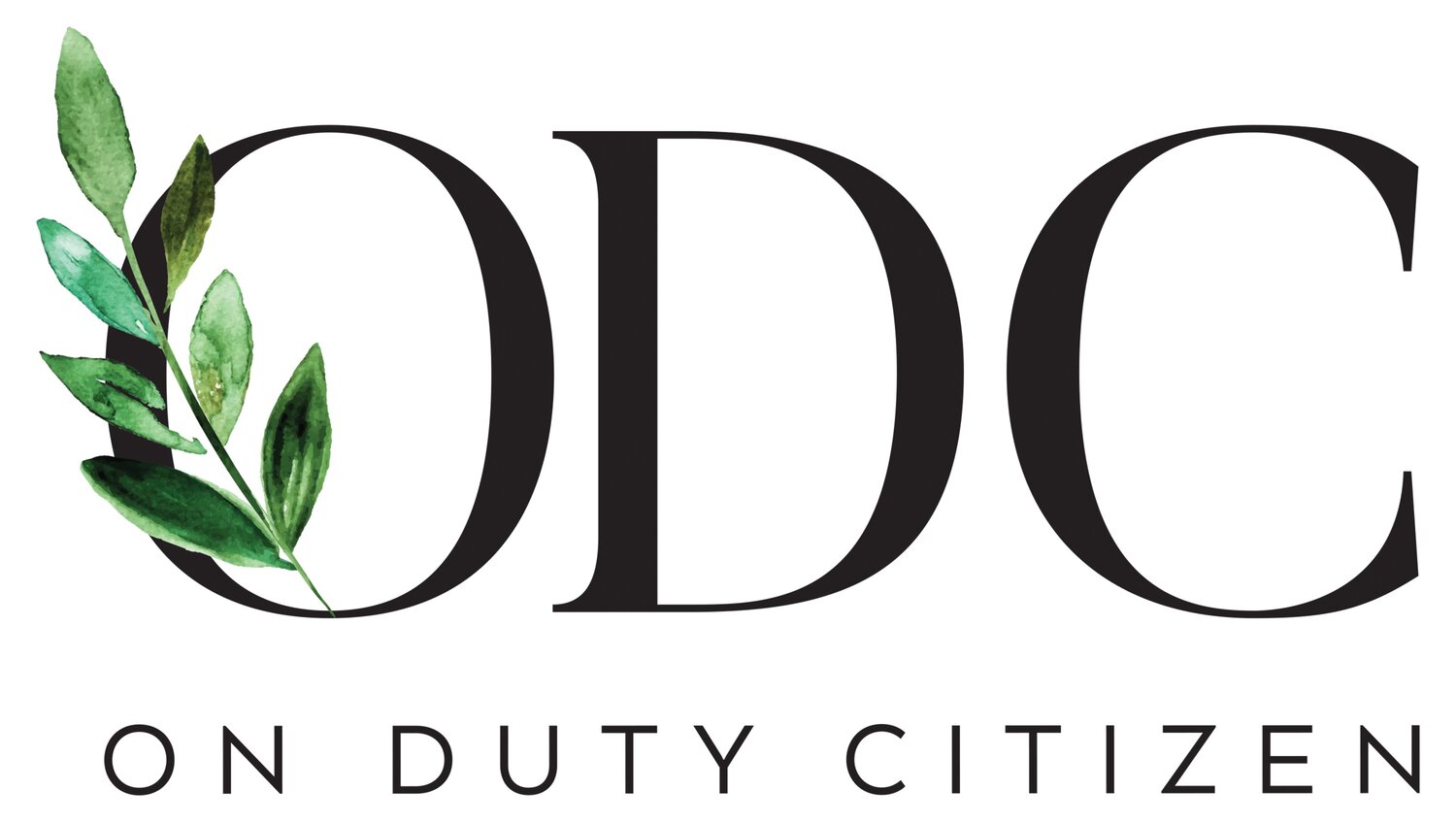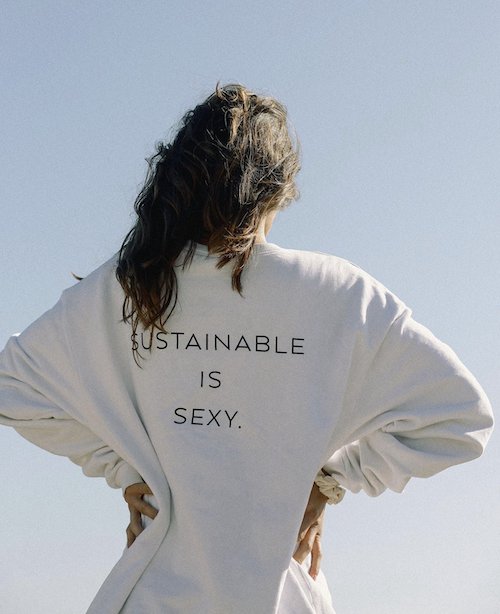ON DUTY CITIZEN
TABITHA ST. BERNARD-JACOBS
1) What message do you have for your new followers as well as the ODC community about your own experiences as a Black woman and business owner and how you have remained so passionate and motivated throughout this current movement?
For my new followers, I want to welcome them but also to let them know that my profile is a place to come and learn. It’s not a forum for hate or discrimination and it’s not a place for white people to come to who have not accepted that they are racist. I’m completely fine with people coming to me with questions but I can usually tell whether their intentions are to learn or to argue or to make themselves feel better about their own racist practices. While people like me are being harassed, marginalized and killed, I have no capacity to entertain people who aren’t coming to the work with an open heart. This work drives me to stay in the struggle because I want to invest in the type of world I want my kids to grow up in. I want to create a better world than what we are currently living in. That’s what drives me to remain motivated.
2) What are some of the concrete ways in which you think we can continue our growth and unlearning and ensure we do not lose momentum with this movement?
I want to rephrase that question. It’s not about us losing momentum with this movement. Justice doesn’t come about when folks wait for momentum to build. Every one of us has an active role to play in fighting racism. Each one of us, and particularly white people, need to commit to ensuring that this movement results in systemic change. The reality is that the natural trajectory of movements outlines that there are stages to every moveent that requires all of us to commit to the long term even when it is no longer in the headlines. Some ways to ensure that is to follow the leadership of Black movement leaders like the Movement For Black Lives and follow their direction in terms of the work needed. If you’re unsure of some of the language and terms you’re seeing, devote yourself to an education that is not performative or extractive from Black communities. Commit to having those difficult conversations with those around you about white privilege, white supremacy, racism and anti-racist practices. Show up when you’re needed and commit to a lifelong journey of unearthing and learning.
3) What have been some of the biggest milestones you’ve seen within the past few weeks that have made you feel optimistic about the future?
The biggest shift that I’ve seen that has come way too late has been the cultural pivot in terms of listening to Black leaders and the conversations that are happening across the country about Black lives. You can find a shortened list of some of the other accomplishments here. It is traumatic for our lives to be in danger and then to also have to convince those with the privilege that what we are going through is real.
4) What inspired you to get involved in the sustainability movement?
Around 10 years ago, I was deep in the fast fashion world, not giving a thought to waste in the industry from a consumer perspective. Fast fashion is like fast food. It’s quick, it’s easy and it serves a very immediate need in one’s life. But it’s also very bad for you and for so many others along the path to its production. I wasn’t thinking critically about that. When I started working in the industry and saw, not just the amount of waste, but also the callous regard for the environment and people, I couldn’t not fight for change. Anyone with a moral conscience will tell you that, once you see injustice, it changes you and you can’t just unsee it. That happened to me. I left the industry and starting blogging and doing research about sustainability which led to me starting a zero waste fashion line which became an artistic platform for ethical fashion.
5) The sustainable/environmental movement has been quite white-washed with many of the leaders dictating a specific look and approach to environmentalism that is unattainable for many different groups of people, especially within the BIPOC community. What are some of the ways in which you think we can make the sustainable/environmental movement more inclusive?
Not only is that whitewashed, we also don’t talk enough about the classism at play. I grew up poor in Trinidad. Consuming less, repairing clothing, wearing clothes until they are threadbare are all habits of people of little means. These practices are now seen as trendy because of the moment sustainable fashion is in. Because of the merits of ethical fashion, the price of sustainable clothing is often unattainable to the very people who practice it out of necessity. So the industry is extracting practices with very few companies putting thought behind the impact of this industry on poor people. We can work on it being more inclusive by elevating the voices and experiences of the BIPOC community. This doesn’t just mean using us for our stories or our looks for photoshoots. This means putting us in places of power in sustainable fashion companies, hiring us, listening to us and ensuring that racial equity is not an afterthought but rather, a key tenet in every facet of the company.
6) With regards to environmentalism, what are some daily habits or tips you practice to live a more conscious lifestyle?
I am always on a quest to reduce the use of single-use plastic in our home. It’s actually become easier with the pandemic. We don’t use bottled water at all. We use refillable water bottles. My kids wear mostly secondhand clothing. When they’re outgrowing their clothing, my first step is to ask my mommy community for their kids’ old clothes. I also wear mostly secondhand, as well. I still have a few fast fashion pieces from my old days and I think that throwing out fast fashion to make way for more ethical clothing is wasteful if the clothing is wearable. When I do shop new, I shop from brands like Mara Hoffman, who I know I’m aligned with in terms of my values and her commitment to the community. I also compost. It’s a full lifestyle that I’m always on a quest to expand.
7) Something I have loved seeing are more BIPOC women on my social media feed, finally getting the attention to preach what they have been preaching for so long, now to a much wider audience. Who are some of your biggest mentors and inspirations within the BIPOC community you’d like to give a shout out to?
I’m inspired by Mariame Kaba, Dr. Barbara Ransby, Charlene Carruthers, Assata Shakur, Dominique Drakeford, Céline Semaan, and so many more. I also work for Women’s March so I happen to work daily with the most badass group of activists that I know who throw down daily in so many different ways for the movement.
8) Tell us about your role with the Women’s March and how you got involved in that.
I joined the Women’s March on Day 2 after reaching out to Bob Bland, one of the founders, to get involved. I wanted to make sure that Black women had a seat at the table of such a historic convening. I then co-founded Youth Empower, the youth arm of the organization and led a team that organized the Enough National School Walkouts that saw 2 million students walk out of schools across the country demanding safety from gun violence. That remains the largest decentralized single day protest in the history of this country. I now serve as the Director of Community Engagement.
9) How do you approach the intersectionality of different movements like the Women’s rights movement, Black Lives Matter as well as the sustainable movement?
Our liberation is all bound in each other’s. Emma Lazarus said none of us are free until we are all free. Sexism, racism, the exploiting of workers and the environment are all part of a larger system built on white supremacy. We must work to dismantle all because none of them serve any of us, even white people.




